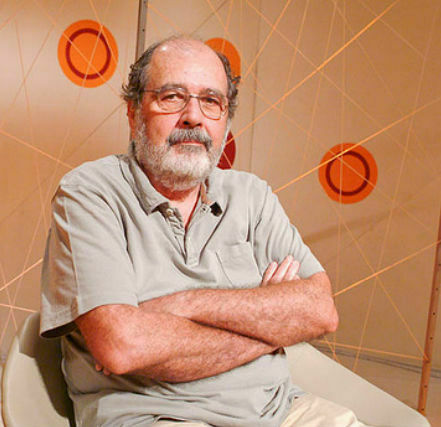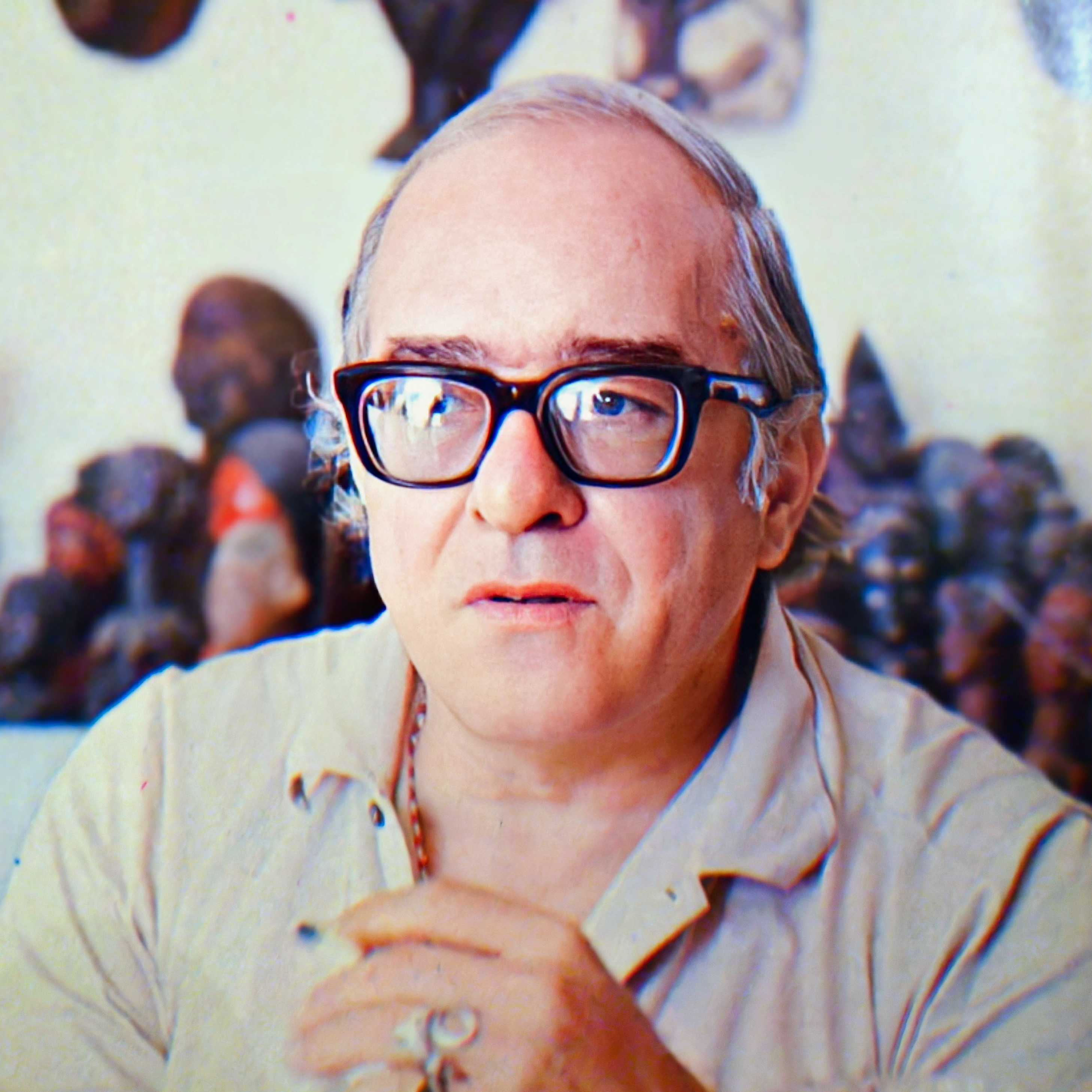|
Orfeu
''Orfeu'' is a 1999 Brazilian drama film directed by Carlos Diegues, based on the play '' Orfeu da Conceição'' by Vinicius de Moraes. It retells the Greek legend of Orpheus and Eurydice, setting it in the modern context of Rio de Janeiro during Carnival. Toni Garrido stars as Orfeu, Patrícia França as Eurídice and Murilo Benício as Lucinho. Mostly shot in scenographic ''favela'' in Jacarepaguá, Rio de Janeiro, it included scenes from the 1998 Carnival celebration in which Garrido paraded with the samba school Viradouro. Cast *Toni Garrido as Orpheus *Patrícia França as Eurydice *Murilo Benício as Lucinho *Zezé Motta as Conceição *Milton Gonçalves as Inácio *Isabel Fillardis as Mira *Maria Ceiça as Carmen *Stepan Nercessian as Pacheco *Maurício Gonçalves as Pecê Reception It won the 1st Grande Prêmio Cinema Brasil for Best Film, Best Cinematography and Best Score. It was also the Brazilian submission to the 2001 Academy Award, but it did not enter the compet ... [...More Info...] [...Related Items...] OR: [Wikipedia] [Google] [Baidu] |
1st Grande Prêmio Cinema Brasil
The 1st Grande Prêmio Cinema Brasil ceremony, presented by the Ministry of Culture of Brazil, honored the best audiovisual productions of 1999. It took place on February 12, 2000, at the Palácio Quitandinha in the city of Petrópolis, Rio de Janeiro. During the ceremony, the Ministry of Culture presented the Grande Prêmio Cinema Brasil in 17 categories. The ceremony, televised by TV Cultura and Televisão Educativa, was directed by José Possi Neto and hosted by actress Regina Casé. The film '' O Primeiro Dia'' (''Midnight'') was nominated for nine awards (the most of any film), followed by ''Orfeu'' with seven nominations. ''O Primeiro Dia'' and ''Orfeu'' tied for the most awards won, with three each. Other film winners included ''Nós que Aqui Estamos por Vós Esperamos'' with two awards, and ''Por Trás do Pano'', ''Outras Estórias'' and ''Dois Córregos'' with one each. Background After a decree during the administration of President Fernando Collor de Mello abolished ... [...More Info...] [...Related Items...] OR: [Wikipedia] [Google] [Baidu] |
Orfeu Da Conceição
' (Orpheus of the Conception) is a stage play with music in three acts by Vinicius de Moraes and music by Antônio Carlos Jobim. It premiered in 1956 in Rio de Janeiro. The play became the basis for the films ''Orfeu Negro'' (''Black Orpheus'', 1959) and ''Orfeu'' (1999), and for the musicals ''Orfeu'' (Brazil, 2010) and ''Black Orpheus'' (Broadway, 2014). The play sets the Greek myth of Orpheus and Eurydice in a contemporary favela in Rio de Janeiro during the Brazilian Carnival. Started in 1954, the play was first performed on 25 September 1956 at the Teatro Municipal in Rio de Janeiro with a stage setting by Oscar Niemeyer Oscar Ribeiro de Almeida Niemeyer Soares Filho (15 December 1907 – 5 December 2012), known as Oscar Niemeyer (), was a Brazilian architect considered to be one of the key figures in the development of modern architecture. Niemeyer was .... Abdias do Nascimento was in the original cast. Songs to the play were released on an Odeon-EMI LP (MOD ... [...More Info...] [...Related Items...] OR: [Wikipedia] [Google] [Baidu] |
List Of Brazilian Submissions For The Academy Award For Best Foreign Language Film
Brazil has submitted films for the Academy Award for Best International Feature Film since 1960. The award is handed out annually by the United States-based Academy of Motion Picture Arts and Sciences to a feature length motion picture produced outside the U.S. that contains primarily non-English language dialogue. It was not created until the 1956 Academy Awards, in which a competitive Academy Award of Merit was created for non-English speaking films, and has been given annually since. , 51 Brazilian films have been submitted for the award. Four of these submissions resulted in nominations for the Best Foreign Language Film Oscar, but none of them won. ''Orfeu Negro'', a Portuguese language film shot in Brazil by French director Marcel Camus, won the award at the 1959 ceremony, but it was submitted by the French government and thus France was credited as the only recipient of the award. Statistics Films directed by Carlos Diegues (also known as Cacá Diegues) have been ch ... [...More Info...] [...Related Items...] OR: [Wikipedia] [Google] [Baidu] |
Vinicius De Moraes
Marcus Vinícius da Cruz e Mello Moraes (19 October 1913 – 9 July 1980), better known as Vinícius de Moraes () and nicknamed O Poetinha ("The little poet"), was a Brazilian poet, diplomat, lyricist, essayist, musician, singer, and playwright. With his frequent and diverse musical partners, including Antônio Carlos Jobim, his lyrics and compositions were instrumental in the birth and introduction to the world of bossa nova music. He recorded numerous albums, many in collaboration with noted artists, and also served as a successful Brazilian career diplomat. Early life Moraes was born in Gávea, a neighbourhood of Rio de Janeiro, to Clodoaldo da Silva Pereira Moraes, a public servant, and Lidia Cruz, a housewife and amateur pianist. In 1916, his family moved to Botafogo, where he attended Afrânio Peixoto Primary School. Fleeing the 18 of the Copacabana Fort revolt, his parents moved to Governador Island while Moraes remained at his grandfather's home in Botafogo to finis ... [...More Info...] [...Related Items...] OR: [Wikipedia] [Google] [Baidu] |
Orpheus
Orpheus (; Ancient Greek: Ὀρφεύς, classical pronunciation: ; french: Orphée) is a Thracian bard, legendary musician and prophet in ancient Greek religion. He was also a renowned poet and, according to the legend, travelled with Jason and the Argonauts in search of the Golden Fleece, and even descended into the Underworld of Hades, to recover his lost wife Eurydice. Ancient Greek authors as Strabo and Plutarch note Orpheus's Thracian origins. The major stories about him are centered on his ability to charm all living things and even stones with his music (the usual scene in Orpheus mosaics), his attempt to retrieve his wife Eurydice from the underworld, and his death at the hands of the maenads of Dionysus, who tired of his mourning for his late wife Eurydice. As an archetype of the inspired singer, Orpheus is one of the most significant figures in the reception of classical mythology in Western culture, portrayed or alluded to in countless forms of art and popular ... [...More Info...] [...Related Items...] OR: [Wikipedia] [Google] [Baidu] |
Isabel Fillardis
Isabel Cristina Teodoro Fillardis (born August 3, 1973, in Rio de Janeiro, Brazil) is a Brazilian actress and model. Career Fillardis began her career as a model at age 11, and at 15 she became a professional model. Two years later, at the insistence of her agency, Ford Models, she marked her acting debut in the role of "Ritinha" in ''Renascer,'' a soap opera aired by TV Globo. She participated as one of three members in the girl group Sublimes, which had ephemeral success in the 1990s. In November 1996, she posed nude for Playboy magazine. Fillardis has starred in several telenovelas like ''A Lua Me Disse'', ''Começar de Novo'', ''A Padroeira'', ''Força de um Desejo'', '' Corpo Dourado'', ''A Indomada'', '' O Fim do Mundo'', ''A Próxima Vítima,'' and ''Pátria Minha''. In films, Fillardis appeared in ''Orfeu'', ''Navalha na Carne,'' and ''O Homem Nu''. In 2007, Fillardis joined the cast of the telenovela ''Sete Pecados'', created by Walcyr Carrasco, and in 2008, she jo ... [...More Info...] [...Related Items...] OR: [Wikipedia] [Google] [Baidu] |
Zezé Motta
Maria José Motta de Oliveira (born 27 June 1944), known as Zezé Motta, is a Brazilian actress and singer. She is considered one of the most important actresses in Brazil. Life and career Born in Campos dos Goytacazes, she moved with her family to Rio de Janeiro at the age of two. She attended the school of Tablado Theatre and began her acting career in 1966, starring in the play ''Roda-viva'', by Chico Buarque. Other plays she worked in include ''Arena Conta Zumbi'' (1969), ''Orfeu Negro'' (1972), and ''Godspell'' (1974) She began her singing career in 1971 in the nightclubs of São Paulo. Between 1975 and 1979, she released three LPs, and a further three albums in the 1980s. In 1976 she starred in the film ''Xica da Silva''. Over the decades she has acted in some of the most popular television soap operas and series.Alvaro NederArtist biography AllMusic. Discography # ''Gerson Conrad & Zezé Motta'' (1974) LP/CD # ''Zezé Motta (Prazer, Zezé)'' (1978) LP/CD # ''Negritude'' ... [...More Info...] [...Related Items...] OR: [Wikipedia] [Google] [Baidu] |
Carlos Diegues
Carlos Diegues, also known as Cacá Diegues (born May 19, 1940), is a Brazilian film director. He was born in Maceió, Alagoas, and is best known as a member of the Cinema Novo movement. He is popularly known for his unconventional, yet intriguing film techniques among other film producers of the Cinema Novo movement. Diegues is also widely known for his dynamic use visuals, ideas, plots, themes, and other cinematic techniques. He incorporated many musical acts in his film as he favored musical pieces to be complementary of his ideas. Diegues remains very popular and is regarded as one of the most cinematic producers of his generation. Of the Cinema Novo directors, he would go on to produce films, plays, musicals and other forms of entertainment in Brazil. Diegues' contributions to Brazilian cinema developed the film industry. He would pioneer expensive film projects that domestic filmmakers had ever seen. Films such as ''Bye Bye Brazil'' were two million dollar projects and later ... [...More Info...] [...Related Items...] OR: [Wikipedia] [Google] [Baidu] |
João Emanuel Carneiro
João Emanuel Carneiro Silva (born 17 February 1970), also known by his initials JEC, is a screenwriter, film director, and author of Brazilian telenovelas. His many works include: ''Central Station'', '' Midnight'', ''Orfeu'', and ''Castelo Rá-Tim-Bum''. His greatest hit on television was '' Avenida Brasil'' that broke several TV audience records in Brazil and abroad, being sold to more than 130 countries. Aired originally between March-October 2012, the telenovela achieved an overall average of 42 rating points and a 69% share. The last episode scored an impressive 56 rating points and an 84% share, with more than 50 million (sic) viewers, becoming the most watched TV program of the year. '' Avenida Brasil'', was considered by ''Forbes'' the most-commercially successful telenovela in Brazilian history, with total earnings estimated in $1 billion. He was considered by '' Época'', one of the 100 most influential Brazilians in 2012. Biography Carneiro began his writing caree ... [...More Info...] [...Related Items...] OR: [Wikipedia] [Google] [Baidu] |
Affonso Beato
Affonso Henrique Beato (born July 13, 1941) is a Brazilian cinematographer. He has served as the President of the Brazilian Society of Cinematographers, receiving a Lifetime Achievement Award in 2013. He is also a member of the American Society of Cinematographers. In 2017, he became a member of The Academy of Motion Picture Arts and Sciences. Beato was born in Rio de Janeiro. He started his cinematic career during the 1960s, gaining international recognition with his work on Glauber Rocha's ''Antonio das Mortes'' (1969). From the 1970s, he started an international career, notably collaborating with directors Jim McBride ('' The Big Easy'', '' Great Balls of Fire!'' ) and Pedro Almodóvar (''The Flower of My Secret'', ''Live Flesh'' and ''All About My Mother''). In 2004, he was the Director of Photography on fellow Brazilian Walter Salles's first Hollywood effort ''Dark Water''. Other notable credits include '' Ghost World'', ''The Queen'', ''Love In The Time Of Cholera'', and ... [...More Info...] [...Related Items...] OR: [Wikipedia] [Google] [Baidu] |
Stepan Nercessian
Stepan Nercessian (born 2 December 1953) is a Brazilian actor and politician of Armenian descent. Nercessian was born in Cristalina, Goiás; his career began in the late 1960s, in the film ''Marcelo Zona Sul''. He also acted on stage and television, having worked for Rede Globo from 1971 to 2018. Political career In 2004 Nercessian was elected councilman of the city of Rio de Janeiro, for the Popular Socialist Party ; being re-elected in 2008. In the 2010 Brazilian general election, he was elected federal deputy representing the state of Rio de Janeiro with 84,006 votes. Selected filmography * 1970 : '' Marcelo Zona Sul'' : Marcelo * 1971 : ''Pra Quem Fica, Tchau'' Lui * 1971 : '' André, a Cara e a Coragem'' : André *1972 : '' Revólveres Não Cospem Flores'' * 1973 : '' Amante Muito Louca'' : Junior * 1973 : '' Primeiros Momentos'' : Tatá * 1973 : ''Como É Boa Nossa Empregada'': Bebeto * 1973 : ''Xica da Silva'' : José * 1977 : '' L ... [...More Info...] [...Related Items...] OR: [Wikipedia] [Google] [Baidu] |
Milton Gonçalves
Milton Gonçalves (; 9 December 1933 – 30 May 2022) was a Brazilian actor and television director, who was one of the most famous black actors in Brazil, having collaborated twice with acclaimed director Héctor Babenco. One notable role with Babenco was that alongside William Hurt and Raul Julia as a police chief in '' Kiss of the Spider Woman''. He worked in many telenovelas, including ''A Cabana do Pai Tomás'', ''Irmãos Coragem'', ''O Bem-Amado'', ''Pecado Capital'', '' Baila Comigo'', ''Partido Alto'', ''Mandala'', ''Felicidade'', ''A Favorita'', and ''Lado a Lado''. He also worked as director in ''O Bem-Amado'' and '' Escrava Isaura''. Career Gonçalves began his career in São Paulo, in an amateur group. As he moved to a professional group, he met Augusto Boal, who was looking for an actor to play an old black man. Joining Boal's Teatro de Arena, Milton Gonçalves found an open environment for political, philosophical, and artistic discussion, where he was not discrim ... [...More Info...] [...Related Items...] OR: [Wikipedia] [Google] [Baidu] |




